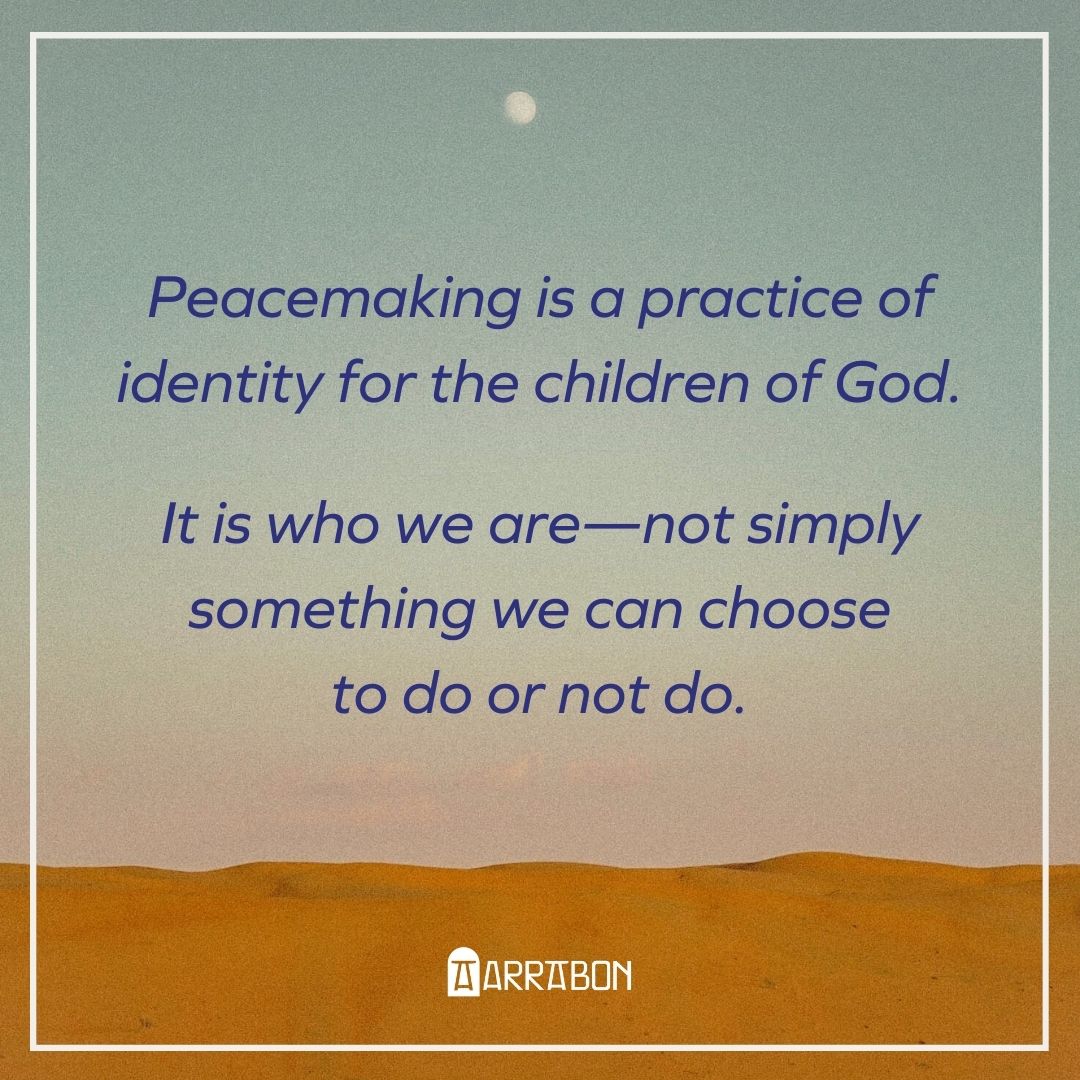Passing the Peace: Our Communal Wilderness
Tired and tested. Weary and wandering. Lonely and lost. This is what it feels like in the wilderness.

Share this Article
Jesus, full of the Holy Spirit, left the Jordan and was led by the Spirit into the wilderness…Jesus returned to Galilee in the power of the Spirit, and news about him spread through the whole countryside.
Tired and tested. Weary and wandering. Lonely and lost. This is what it feels like in the wilderness.
The season of Lent brings with it a reminder of Jesus’ journey into the wilderness. If you’ve been trying to walk a path of reconciliation and peace-making during this time of toxic polarization, then Lent and Jesus’ temptation in the wilderness have profound significance.
Communal Wilderness
It is in the wilderness seasons of our lives where we are tested, molded and taught new things about ourselves, about God, and about our place in God’s plan of reconciliation. As the 2024 election season intensifies, I sense that we are in a type of “communal wilderness”– one that is rife with temptations to live counter to the way of Jesus.
Luke 4 shows us Jesus’ responses to the temptations set before him during his 40 days in the wilderness. In the 30 years before his wilderness trial and the beginning of his public ministry, Jesus’ identity was clearly and firmly rooted in his status as a child of God. What would it mean for us, first and foremost, to be rooted in our identity as the children of God?

Peacemaking as a Child of God
Our communal wilderness is an ecosystem of toxic polarization that trains us to see anyone who disagrees with us as an enemy to be dominated. Our wilderness season is one of seemingly clear winners and losers, often divided along partisan lines. Too often, our public lives seem to reflect our “us vs. them” environment rather than the cross-shaped way of Jesus. But by the power of the Spirit, we can cling to the foundational message of truth—that by following Jesus we are given the birthright status as children of God (John 1:12). And as children of God, we can and must be known as peacemakers (Matthew 5:9).
In God’s upside down Kingdom, it is the peacemakers who are blessed. Though our world does not reward peacemakers, God’s Kingdom is for those who live into their God-given calling to be people of peace and shalom. In the ups-and downs of this election season, as we interact with family, friends, and even our “enemies”, we must remember that peacemaking is a practice of identity for the Children of God. It is who we are—not simply something we can choose to do or not do.

|
At Arrabon, we recognize that reconciliation is spiritual formation. Embodied practices are a key way in which God forms us to be reconciling peacemakers. Breath Prayer and Prayers of Lament are two practices we encourage you to use during Lent. We utilize each of these practices at strategic points in our Spiritual Formation Journey and we’ll offer more invitations to engage these practices on our social media channels this month—follow along on Facebook and Instagram. |
|
Breath Prayer In the midst of a society that is constantly demanding you choose one side or the other, and goes on to assign a list of assumptions about your identity based on which way you lean, remembering your identity as a child of God can quickly and easily be shouted down and forgotten. Breath prayers are a simple practice of bringing our attention to God’s presence and can be used to ground and center our mind and body on God’s provision and presence. As you inhale, speak the first part of the prayer, and speak the second part as you exhale. Repeat several times, noticing God’s presence with you as you breathe in and out. Inhale: I am your child, O God Exhale: I receive your love.
The wilderness is not our home. It is right and good for us to lament our time in the wilderness, to name our grief and our anger, and to cry out for relief and reprieve. A lament is a passionate expression of grief or sorrow to articulate the pain we observe within ourselves and the hurting world around us. Consider using Psalm 12 as a prayer of lament for this season. The psalm begins with this poignant lament: “Help, Lord, for no one is faithful anymore…” |
The Lenten season is the Church’s yearly exploration of the wilderness. It is a time of repentance and renewal—a time of letting go in order to further live into our identity as children of God. Just as Jesus was led into the wilderness by the Holy Spirit, may we listen to the prompting of the Spirit in our own wilderness, trusting that we are being formed into people of reconciliation and shalom.
Written by David M. Bailey. Originally published in Arrabon’s email newsletter “Passing the Peace.” Sign up for our newsletter below.
Related Reading
Passing the Peace: Celebrating as People of the Resurrection
It is Christ’s life, death, and resurrection that makes it possible for us to experience the hope of reconciliation.
Passing the Peace: Continuing in the Wilderness
Living as peacemakers amid toxic polarization and division requires attuning our ears to the voice of God.


